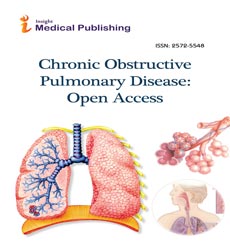Abstract
A Rapid Immunodiagnostic Test for Active Tuberculosis
Delay healthcare seeking is one of the major impediments to successfully prevent and control sexually transmitted infections (STIs) including HIV. Gambella is one of the HIV hot spot areas and the most HIV prevalent region in the country. Considering the empirical knowledge of the link between STIs and HIV, gathering information on health seeking behaviour and the associated factors among STI patients is helpful to design interventions that enhance early seeking and treatment adherence. A facility based cross-sectional study was employed to collect data from 424 STI patients from February 15 to April 15, 2017, using a face-to-face interview. A consecutive sampling method was used until the allocated sample for each facility was fulfilled. A multivariate logistic regression analysis was used to identify factors associated with health-seeking behavior. The proportion of delayed healthcare seeking among patients treated for STIs was 56.8%. knowledge, behavior and perception variables were found significantly associated with early seeking behavior in multivariate logistic regression: patients who had good knowledge of STIs (AOR = 1.74, 95% CI = 1.10, 2.73), had single sexual partner (AOR = 1.83, 95% CI = 1.19, 2.78), those who perceived stigma for STIs (AOR = 0.52, 95% CI = 0.34, 0.79), and perceived severity of STIs (AOR = 1.97, 95% CI = 1.18, 3.29). This study reported a high proportion of delayed healthcare seeking. This may challenge the prevention and control effort and alarms the potential threat to the spread of STI/HIV in the region. Provision of intensive health education is crucial to improve awareness and to avoid risk behaviors and negative perceptions.
Author(s): Anil Kumar Gupta
Abstract | Full-Text | PDF
Share this

Awards Nomination
Google scholar citation report
Citations : 130
Abstracted/Indexed in
- Google Scholar
- China National Knowledge Infrastructure (CNKI)
- Publons
- Geneva Foundation for Medical Education and Research
- Secret Search Engine Labs
Open Access Journals
- Aquaculture & Veterinary Science
- Chemistry & Chemical Sciences
- Clinical Sciences
- Engineering
- General Science
- Genetics & Molecular Biology
- Health Care & Nursing
- Immunology & Microbiology
- Materials Science
- Mathematics & Physics
- Medical Sciences
- Neurology & Psychiatry
- Oncology & Cancer Science
- Pharmaceutical Sciences

